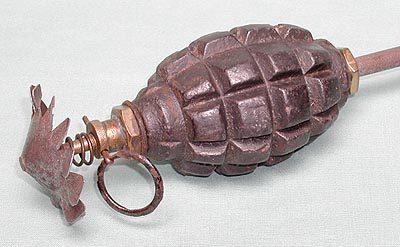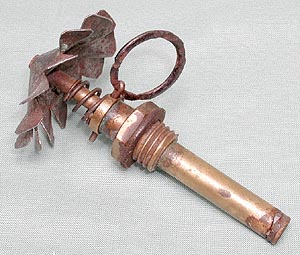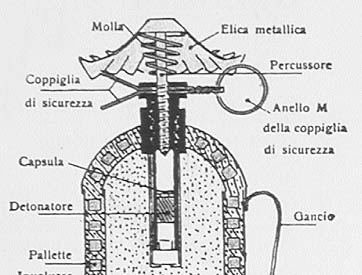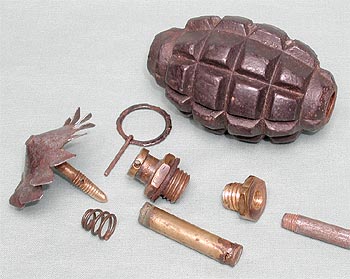

Here is a little known rod grenade.
It appears to have a French F1 body,
with a fuze that resembles an Italian one, with a style like the British
No.25 Mk.I rod grenade.
Most likely French and probably an experimental type, as it doesn't show up in any texts that I am aware of.

The spinner is partially threaded, so that after a half
dozen revolutions or so, the mating threads clear and
the shaft/firing pin is free to move rearward. A creep
spring keeps the pin away from the primer until
impact. The fuze body and base plug adapter are made
of brass, and the cast iron grenade is painted black.
Delhomme references this fuze in his French grenade
manuel on page 112, as "P2 Model 1915".
(Thanks Larry)

Note the distinct similarities between it and the fuze on the French grenade.
He describes his grenade as being fielded about the 1915-16 time frame (if my French is good enough). So I'm guessing that the French had access to Italian fuzes and came up with their own impact type.
According to D. Lynn (G.R.M.) the British experimented with their own version of this during 1916-17 (the No.25) so they may have been playing with a copy of this idea..
Would love to hear opinions on this
Illustration from:
Grenades a Main et a Fusil Italiannes 1914-1918
Maurice Frei
1994

Here are the piece parts to examine.
The detonator tube has the primer still intact, Looks like the base plug of the det. tube has been removed and re-attached. There is a "rattle" inside so I know it is empty.
One appealing design feature of this is the broad spinner. This would help in soft ground as the grenade would detonate before digging itself deep it the mud.
But this was late in the era of rod grenades and the whole concept was soon to become obsolete.